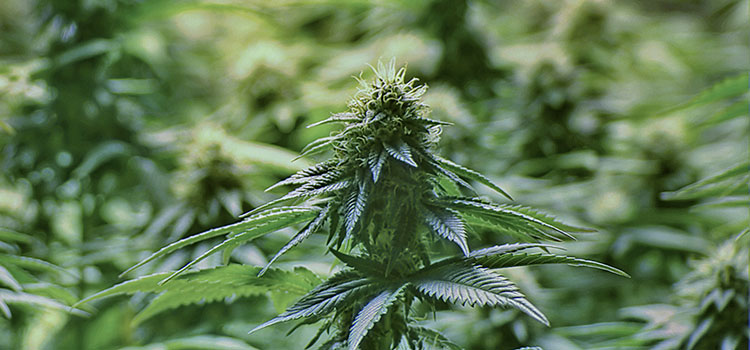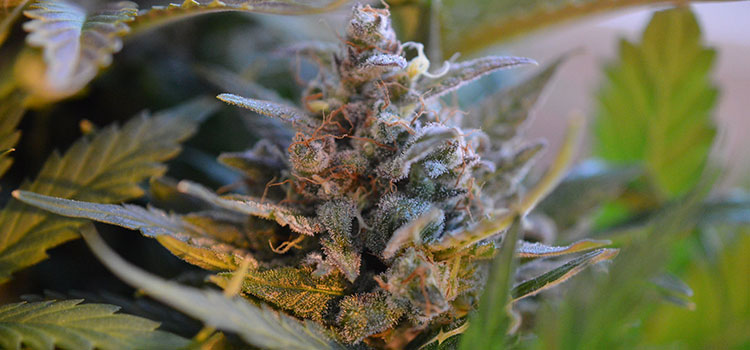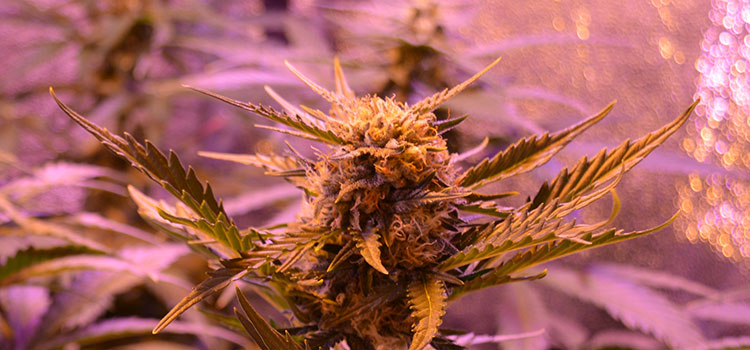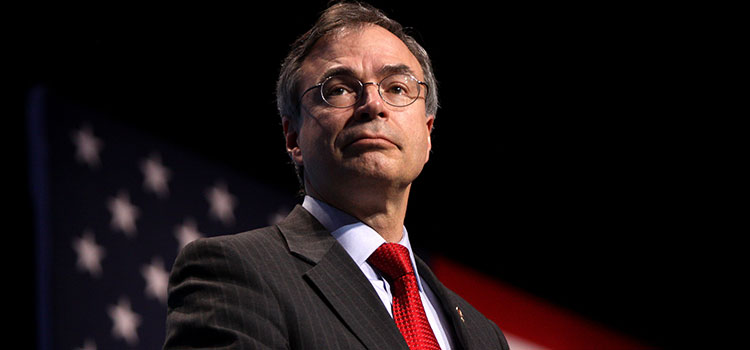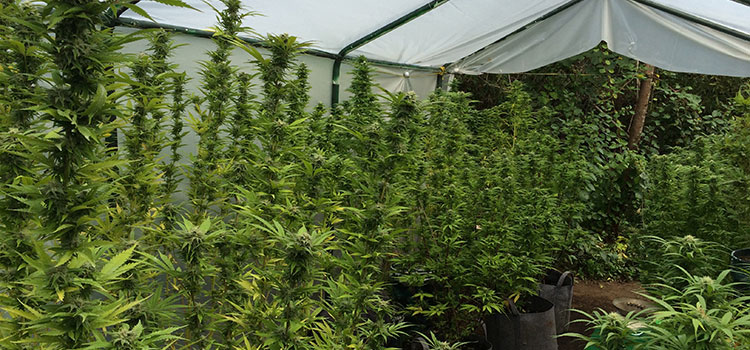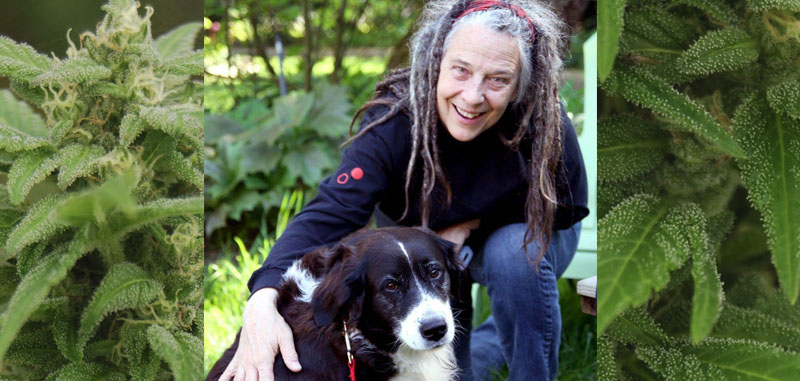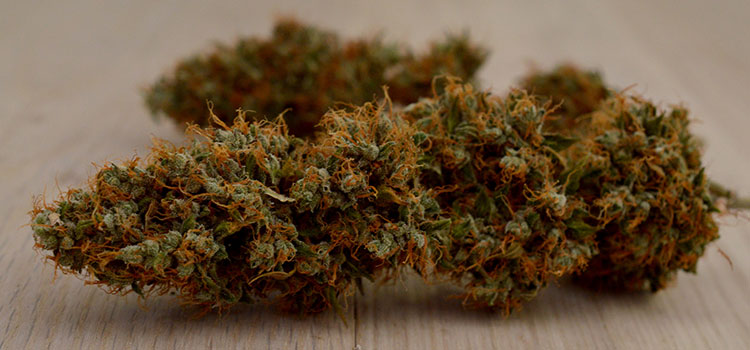Cat Jeter is the founder of Deep Green, an award-winning full plant extracts manufacturer in Washington State. She recently joined our host Shango Los for a conversation about the history of the Washington State medical marijuana market, which will soon be absorbed by the recreational market due to pending regulations. In the interview, she discusses the movement that led to the creation of the medical cannabis market in Washington, how it grew and changed over time, and how the passage of I-502–Washington’s recreational cannabis ballot measure–affected the market and those who had dedicated their lives to serving patients. Listen to the interview using the media player below, or scroll down for the full transcript!
Subscribe to the Ganjapreneur podcast on iTunes, Stitcher, SoundCloud or Google Play.
Listen to the podcast:
Read the transcript:
Shango Los: Hi there, and welcome to the Ganjapreneur.com podcast. I’m your host, Shango Los. The Ganjapreneur.com podcast gives us an opportunity to speak directly to entrepreneurs, cannabis growers, product developers, and cannabis medicine researchers, all focused on making the most of cannabis normalization. As your host, I do my best to bring original cannabis industry ideas that will ignite your own entrepreneurial spark, and give you actionable information. To improve your business strategy, and improve your health, and the health of cannabis patients everywhere.
Today my guest is Cat Jeter. Grandma Cat Jeter is the founder of Deep Green, a full plant cannabis extracts producer located in Washington state. Founded with pediatric outreach as a core principle, award winning Deep Green has been a market leader in product testing, direct patient outreach, and branding from its very inception. I’ve asked Cat to be a guest on the show today because of her 43 years of medical cannabis experience. You know, every tribe has a keeper of the stories. Cat is a prominent protector of that flame in Washington. She has participated in nearly every aspect of the cannabis industry, and advocacy, and because of that, she has an understanding of the arc of cannabis history that very few people can offer.
During today’s show, we’re going to discuss the early days of medical cannabis in Washington, how the industry matured, and its very controversial demise coming on July 1st of this year. Welcome to the show, Cat.
Cat Jeter: Thank you so much, Shango, for having me. It’s a pleasure to talk to you and your listeners.
Shango Los: Cat, let’s start off at the beginning. Let’s go all the way back to 1998. You know, Initiative 692 was passed, which allowed medical marijuana in the state, and also gave permission to doctors to talk to their patients about marijuana. What was it like then? Were people caught off guard, and was there instantly an industry? What was it like in those very early days?
Cat Jeter: Well, I think it’s important to recognize that Washington has historically had a very tolerant attitude towards cannabis. We were busy culturally creating what you might refer to as a dankster class of citizen long before we ever got to any discussion of medical cannabis.
It goes back to our historical advocates in the mid-’90s. Joanne McKee, Ron Parker, Ralph Seeley, all of who were involved in legal action and led to a failed populous to action, I-685 in 1997. Then in 1998, a more streamlined 692 was ratified.
These are the very, very early years. This was still somewhat of a very frightening place. I think it’s important to recognize that Washington was still very, very decentralized in the way we approached medical cannabis. You needed to know someone. Or you needed to be working with the black market, essentially, to take care of your own personal medical needs, or needs for a friend. There was, to the best of my knowledge, only one operating co-op, and that was Joanne McKee’s and Ron Parker’s. The Green Cross over on Bainbridge Island.
Nonetheless, the desire was there. Yet it took a couple of more steps in the process to make that access readily available. Among them were, in 2007, Senate Bill 632, stipulated possession limits. Up until then, you could have cannabis, but how much? What was that trooper on the side of the road going to judge was how much. We didn’t have arrest protection. We had only affirmative defenses. You can see how that was a very uneasy intersection.
Then what really turned everything on it’s head was in 2010, when Senate Bill 5798 enabled more medical professionals to recommend cannabis. Now you had limits, suddenly you had the availability of getting that recommendation, so access had to follow. This is when we really see that the collectives, the dispensary model, really starts growing in Washington state.
Shango Los: Wow, that’s really interesting. The idea of early medical marijuana existing, but there not yet being a dispensary system to get it. That seems so messy. Where you know as a patient you are allowed to possess, but you’re still going to the black market for it. There must have been a lot of scrambling by patients who saw the promise of what medical marijuana might be able to do for them. Yet, how on earth do they get it?
Cat Jeter: Well, and this is, I think, true of almost any cultural movement. That the early adopters are out there and they’re scrambling, it can be risky. From my own family experience, my own father died during this period. We wanted to help him with his death process. I sent my son up to Northgate Mall to meet a fellow named Muadeeb, is all we knew him as. You know, we smoked joints, and we made butter for my terminally ill father. We weren’t even terribly well-versed in cannascience, nor in the process or production of particular products.
This is the same era that Rick Simpson was very busy reacquainting us with an ancient herbal extraction technique making concentrates using some type of a solvent. Yes, dark days, indeed, and confusing for people.
Shango Los: You know, those of us who are associated with cannabis mostly just in the last, say, five to ten years, RSO has always been there for us. Different solvents have always been there for us. What you’re talking about, it was very much the days of early pot brownies. Even though those have become iconic, for a lot of people, getting the cannabis out of the flower and into an edible was itself an advanced extraction technique.
Cat Jeter: Well, you know, I like to say this proliferation of medical cannabis over these last six years has brought about a radical shift in the way that we think of the plant. Not only of its various pieces, but the plant as a whole. You know, we’ve just had a renaissance of new products and reimaginings of cannabis and how we use it. Not only to heal, but to recreate.
Shango Los: You know, somebody who was in your position in those early days, I imagine there’s a lot of similarities to nowadays, where people are asking basic healthcare questions. How cannabis could help them. Nowadays, we’ve got the internet, and we’ve got conventions, and we’re able to exchange information. We’ve got the beginnings of new studies that are coming out of Europe. It must have been really challenging for you to have patients approaching you and asking for information and guidance, when the access to information was really hard.
Cat Jeter: Well, and it was even hard for me. You know, we knew that smoking a joint certainly made anyone who was going through chemotherapy feel a whole lot better, and help them to keep their next meal down. We didn’t have any real sense, I don’t think, even as a culture in exactly how, what we refer to now as cannabinoid therapy, at various dosing levels from low to high, how that type of approach might help us. The shift has just been radical in the last ten years.
Shango Los: It must have been really strange, too, to be legitimized with the passing of the Initiative to allow medical cannabis, and yet still having to go the black market. That shifty vibe that you can, you know, sometimes feel when you’re involved in a prohibited activity. Yet, you’re doing it for the most right and allowable reasons. The mixture of the prohibition culture and medical marijuana culture must have felt very awkward.
Cat Jeter: Well you know, I think this is really one of the inhibiting factors on growth of medical cannabis right now. We refer to it as legal, yet there is a tremendous amount of oppression still associated with medical cannabis. Your job can be held hostage to this. Your family might be held hostage to this. Although we see much less of it in Washington nowadays. You know, there’s still a tremendous amount of judgement associated with outing yourself as someone who chooses a safe herb over a pharma solution.
We’re making progress, but we certainly haven’t pulled the veil back yet. The discomfort is not yet alleviated.
Shango Los: You know, you mentioned the explosion in medical marijuana once the dispensaries existed. Certainly after the dispensaries existed, there was a lot more access. There were more people being able to make money by providing medicine as well. Was anybody really making money ahead of the dispensaries coming into existence? It sounds to me like there were, it probably just infused a bunch of new customers into the black market that had affirmative defense. There probably wasn’t enough economic viability of that model to really have anybody making much money before the dispensaries.
Cat Jeter: I think that’s right. This is one of the ways in which our early medical states are really rather unique, when comparing them against the more commercial models that have come along recently. That is, we do come from a place of compassion. You know, you got to be compassionate when you’re risking yourself in a very, very limitedly defined legal world to help your brother, or your sister, or your mother, or your child.
Now, we are approaching it in a much more broad based approach, and a much more commercial approach. Which, of course, is going to lead to a more normalization of the commercial model. I really didn’t see a lot of money flowing through the system until we got to a point where there were a lot of collectives beginning to appear. Then there would be a few that were just killing it on the commercial level. Naturally they were doing very well financially. This is simple economics. With risk comes reward. It has been very risky throughout all of our medical phase here in Washington.
Shango Los: Well, we’re gonna talk a little bit more about the risks involved, and what enforcement looked like during medical marijuana in Washington after our break. We are going to take that first break right now. You are listening to the Ganjapreneur.com podcast.
Because you listen to the Ganjapreneur podcast, it is very likely that you are a business owner now, or that you plan on getting into cannabis soon. If you’re starting a business, at some point you’re gonna want some swag with your name on it to give away, or maybe even to sell. Promotional items are a way to stay in your customers’ life long after come into contact with them. It reminds them to double back and buy more of your stuff, but it also reminds them to tell their friends about you.
Well, at Ganjapreneur, we’ve been asked by so many new cannabis business owners for referrals on promotional items because they’re getting ready for a convention or a party, or that they just want to give it away. So we went ahead and brought together some preferred vendors, and put them on our website for you.
The web address is ganjapreneur.com/promoitems. Everybody loves doing lighters and t-shirts, and those are still huge winners, of course. Some folks are even now doing logo-ed silicone dab jars and rig-rags, too. There so much to choose from. The website is ganjapreneur.com/promoitems. Go get some cool stuff to promote your company.
As a cannabis entrepreneur, you know how challenging recruiting quality talent can be. Your day’s already busy enough, and yet there’s an ever growing pile of resumes on your desk, and your team is begging you to hire more help. Hiring the right person can make a profound impact on your company. There’s no reason that you have to suddenly have to be an expert hiring manager. Not when there’s Viridian Staffing.
Viridian Staffing recruits solely for adult use cannabis, medical marijuana, and hemp companies, and those that service them. Viridian Staffing’s recruiters each have over ten years of experience, and they will use that experience to recruit the kind of employees that will make you look good. Whether you’re looking for a master grower, extractor, grow room support, or trimming, Viridian can find an appropriate person in your area. They can even recruit administrative or graphic design professionals who may not need cannabis experience.
Because you are a start-up, you may also need human resources help for a while. Viridian Staffing can make sure that your HR files are complete, and keep you out of trouble with state and federal employment requirements.
Because the cannabis industry is booming, cannabis recruiting companies are popping up all over the country. Good marketing does not mean good recruiting. Some of the recruiting shops that have opened are run by novices who do not yet have a thorough understanding of employment law, and the complexities of hiring for cannabis. Don’t hire an amateur to find you a professional. Consider Viridian Staffing to make that stack of resumes disappear, and complete your team with exactly the hire you were hoping for.
You can find out more at viridianstaffing.com. That’s V-I-R-I-D-I-A-N-staffing.com. Now, back to the show.
Welcome back. You are listening to the Ganjapreneur.com podcast. I’m your host, Shango Los. Our guest this week is cannabis patient advocate and entrepreneur, Cat Jeter.
Cat, before the break we were talking about how in the early days, patients had to go to the black market because this was ahead of the dispensary system. That kind of makes me think that it may have been common for patients to get busted by the police, because they’re going about what could seem like a black market transaction … But as a patient, they’re actually allowed to have the cannabis. How many people were getting busted back in the day?
Cat Jeter: Well, I think there were, you know, especially when that intersection between black market and what was medical was being defined, I think it was business as usual the way we had seen it. Now, we’ve mentioned that Washington was a tolerant state, but certainly if you were pulled over on the side of the road, and any reason given to crack your trunk and had a half a pound back there. Whether you were getting ready to bag it out, or you were getting ready to make full plant extract, I don’t think law enforcement particularly cared.
That transferred into a very focused effort as collectives began organizing and serving with the demand for access and product in Washington. It seemed to be, you know, there were a lot of variables. One was geographical. You certainly wanted to be in a friendly county, or a friendly city. A lot of it was the profile with which you carried yourself. You know, were you driving a new Ferrari, or you know, showing it off?
Again, we talked about with risk comes reward, but in an age of judgment, that might not have been your best stance for safety. What we saw were clusters of busts. Where Westnet Drug Task Force would sweep down on two or three organizations at once, and create a real climate of fear. You never saw a whole industry who could drop its umbrellas and be on the road any faster than the medical cannabis industry when there were busts happening.
It made it really very tenuous. Slowly, we figured out where the safe jurisdictions were. I think the best players in the industry figured out they needed to get a business license, communicate with their communities, and take a best practices approach. It still didn’t stop the fact that this is still federally illegal, and you operated by the forbearance of your local authorities.
Shango Los: You know, before the break we were talking about how in the early days, it was mostly all folks could do to extract cannabis out into a fat, like butter, and make it into an edible for patients who were prepared to be smoking, and yet still needed the cannabinoids inside them. It was interesting to me to consider that over your 43 years of experience, you’re probably answering a lot of the same questions that patients were asking then, now. I wonder to what degree your answers have changed. Obviously, we’ve learned so much more as a cannabis scene than we knew 43 years ago.
Cat Jeter: A lot of the questions are the same. Simply because there are so many people who are uneducated, under educated, or misunderstand. A lot of the questions are evolving, too. Certainly the questions where someone is terminally ill, and fighting for that last bit of quality of life that they may have, those questions have stayed the same. Our understanding of cannabis as a helpful healing agent at that point has not radically changed over the last 20 years. These were the examples that we used to legitimize medical cannabis, and get it legalized to begin with.
More recently, we’re seeing questions about how cannabis can help with addiction issues, or persistent pain, or depression. How you can access cannabis that doesn’t make you high, for instance. We hear more questions about accessing cannabis for on-going health, rather than end of life issues. I think all in all, it demonstrates a cultural competence and evolving awareness of the power of the plant.
Shango Los: Yeah, that makes a lot of sense. I would think that people’s questions are getting more sophisticated themselves. In the early days, they were just hearing a whisper over a dinner table, or something. Or you know, a recommendation from a friend. Whereas now, people will have heard that, they will have Googled a little bit, and then they’re coming for more of an expert opinion, built on top of that. I would think that the people who approach you are approaching with much more sophisticated questions, generally.
Cat Jeter: Without a doubt. Thank heavens for the information age. We have better access now to that growing body of science. We’re able to network better with each other. We understand conditions that are helped with cannabis. We understand how various components of the plant, from cannabinoids, to terpenes, to to flavanoids, to even the waxes and lipids. How they help the healing process, and help the plant to work in whole.
Certainly one of the biggest discussions lately has been the entourage effect, instead of just focusing on THC or CBD. We’re beginning to look at how the various constituents of the plant interact to make it an even more powerful healing agent. We’ve also seen that the discussion has shifted from cure exclusively to focusing on quality of life instead.
Shango Los: You know, as far as the quality of life goes, at the top of the show you were talking about how in 2010 the scene kind of got more protections, and a little bit more of a green light as more healthcare providers were allowed to write prescriptions. Also there were more protections because they started to give the carry amounts, and how much you can have on your person, and have at home.
From what I saw, this was turned up even more in February of 2014 when the Cole 2.0 Memo came out. They gave the necessary aspects for individual states to do medical marijuana. At the time, Washington seemed to be in a good position on all of those. It really caused the market in Washington to explode. The number of dispensaries went up. People really felt like they had protections at that point, that before that were simply not as significant. Were people looking for the Cole 2.0 Memo to happen? Or were they just really pleasantly surprised when it came out?
Cat Jeter: You know, I think the Cole 2.0 Memo is one of those situations where I ask myself was it really medical driving it along, or do we need to also acknowledge the fact the two states had just said we’re over your prohibition. We’re going to legalize for all 21 plus adults. I found that it had less to do with medical from my own point of view. A fair amount of it, for medical, felt like I see your lips moving, but what have you done for me lately.
Shango Los: Yeah.
Cat Jeter: You know, in Washington we were right in the middle of a very aggressive persecution of the Kettle Falls Five, out in the eastern side of the state. This at a time when the DOJ, Department of Justice, had been told quit spending funds on this. We were, I think, looking for more positivity, as opposed to another list of prohibitions. Nonetheless, there’s no doubt that it did cause the absolute explosion, it in addition to the 502 passage, in anticipation of what was going to be a legal market. It’s been a wildly successful little petri dish of … For 30 years I’d been siting back and wondering what if cannabis was legal? Well you know what, coming at a time when our own economics had been a downturn, it was Washington’s own economic stimulus plan. There were new firms. There were people with new jobs.
However, I have to comment, too. Our wild embrace of the cannabis lifestyle, including High Times events, and local cannabis competitions, absolutely may have been our downfall at a time when the rest of the community was not moving as fast in their understanding of safe recreation with cannabis, and safe healing.
Shango Los: Yeah, I think that you nailed that on the head, Cat. The scene as a whole exploded, and that meant you had more people doing compassionate care, and also more people seeing a financial opportunity, and also more people seeing an opportunity to party in the open a little bit more. All the different aspects of medical cannabis all got bigger at the same time. There were plenty of opportunities for people to point at minor parts of the community and say see, that’s what we think is bad, and that’s what medical is. Actually, whatever part of that was either being misinterpreted by the general public who don’t understand the medical cannabis scene as a whole, or simply it was a very insignificant part of the scene that they really wanted to shine their light on.
You know, similarly, you were talking about the economic development that came with it. Where I live out here on Vashon Island, after the Cole 2.0 Memo, businesses really got serious about supplying the dispensaries all through Washington state. We’ve been growing high quality indicas here on Vashon Island since the ’70s. You know, the fact that people grow was not a big deal here. The idea that suddenly those folks were able to come out of the closet, get business licenses, develop relationship with dispensaries, start delivering their product, getting it off the island. Actually, starting to help develop, you know, have real economic development. Families that were once fringe, being able to start to participate in true economics state-wide. That was a really beautiful thing. That created a wonderful opportunity.
At the same time, though, people were really aware that 502 had made the ballot, and had passed. We all felt a transition starting to happen. That transition was starting to scare many people. Oh, looks like it’s time for us to take another break. Let’s take a quick break, and we’ll come back and talk about medical marijuana after I-502 passed. You are listening to the Ganjapreneur.com podcast.
The Ganjapreneur podcast is listened to by tens of thousands of cannabis entrepreneurs and enthusiasts every single week. These folks are most likely your target customers, and we’d like to introduce you to each other. Our down to earth and information rich commercial breaks can deliver your message to the cannabis business community, and others who just find relief in getting high.
If you want to reach out and connect with our audience in the most personal way that we can offer, go ahead and drop us an email at grow@ganjapreneur.com, and we can talk about you becoming a commercial sponsor of the podcast. Thank you for listening and being part of the Ganjapreneur family. Now back to the show.
Welcome back. You are listening to the Ganjapreneur.com podcast. I am your host, Shango Los. Our guest this week is cannabis patient advocate and entrepreneur, Cat Jeter.
Before the break, we were talking about the transition that everybody felt coming when I-502 recreational marijuana made the ballot, and passed with a real significant support in the state of Washington.
It created this split in the medical marijuana scene, as more people started moving their intentions toward getting commercial licenses, moving over to the recreational side with the eyes of expanding their businesses and hopefully making some money. Then other folks who maybe didn’t have as much access to capital, and maybe were more patient-centric. For whatever anybody’s personal reasons were, the scene absolutely started to split. Did you see that, too, from where you were sitting, Cat?
Cat Jeter: Oh, without a doubt. It was an extremely, and still is, contentious age. I’ve seen former allies break apart and become each other’s worst enemy over this issue. You know, really at issue is how resistant are you going to be to change?
You know, at the end of the day, if everyone who’s negotiating for change goes away a little bit unhappy, you know you’ve probably got a workable deal. Unfortunately, in creating rights for adult users, we had to step … Or didn’t maybe have to … But the rights of medical cannabis patients were disregarded. A number of other aspects were rather negative about the bill, too, in just indicating an understanding of cannabis. The per se DUI basically made every medical patient a de facto altered driver. Yet there’s no scientific evidence that supports that five nanograms of cannabinoids in your blood stream somehow impair your driving.
You know, the whole idea was sold after an initiative was run in the previous year, which we always felt like plowed the ground for legalization. It was run by and large by the Heritage Medical and Heritage providers. We felt like we’d reaped a corrupt harvest based on our plowing efforts in the year before.
Nonetheless, don’t we have to accept and celebrate the fact that my grandkids, who are quickly approaching 21, will no longer be looking at jail time for simple possession. Society moves back and forth. You’re always swinging to one side or the other of the middle. Truth lies in that negotiation of culture and activity, right.
Shango Los: Yeah.
Cat Jeter: You know, it has been difficult. Along the way, we should have known that it would never last. We’d been working from the compassionate model, and very few people taxing their products, or declaring taxes on their products. We find ourselves now in a model, even with the compressed tax column, that patients are going to be … Unless they give away their HIPAA medical rights with the registry … Paying sales tax on the only medicine in the state of Washington. They have a right to feel oppressed.
I think the folks who worked from the compassionate point of view have every right to feel that in an age of disinformation, leading up to the licensing, and what we now think, suspect, maybe even have some evidence, could have been some favoritism in the granting of licenses for what goes forth next.
I think we also have a right to feel that as pioneers, our intellectual and our financial capital has been squandered in this state. We’ve put the leaders on the outside looking in, and the newcomers on the inside laughing.
Shango Los: Yeah, that’s a really good point. You know, that’s not how the other states did it. You know, in Colorado, they took their existing medical marijuana structure, and blessed it, and then helped it transition to become what was then a combined recreational and medical. Whereas in Washington, they did their best to sideline and exclude everybody who was involved in medical, and then bring in all new people from other industries, and gave them the licenses to produce cannabis.
You know, I knew that this was going to get ugly back at that very first WSLCB meeting downtown, with that packed room. You know, sitting down in the chairs were patients, and a lot of new business faces that I had never seen before. Then in the back of the room were a bunch of really angry activists with signs. They were interrupting the folks who were speaking. For them, this was the end of patient access. They saw the mess that was coming down the line. So many of us were really hoping that they were overreacting.
Now, you know, two years later, we see that they nailed it. Their anger was justified. They were just prescient in understanding what was going to happen two years earlier than everybody else. That was such a clear manifestation of the schism that was coming with the passing of I-502, and then 5052 last year, which got rid of all the dispensaries.
Here we are today, right. It’s June 7th, and we’ve got 23 days until the July 1st deadline when all the dispensaries have to be closed and the, whatever, 19 years of medical marijuana as we know it comes to an end. What do you see as the landscape for medical marijuana going forward, Cat? I mean, is it even worth calling medical marijuana anymore? What do you see as the future?
Cat Jeter: Well, you know, I think there’s a case that can be made that all cannabis is medical, right. You know, if it’s true that it’s good for your he5alth, then even casually toking up a joint can be somewhat medical for you. You know, those people weren’t wrong. While I think maybe we could have espoused a little softer shoe approach, and in fighting for our rights, the worst has in fact come to happen.
Patients are in a panic. No doubt about it. At our office, we get many calls a day. Where am I going to be able to find Deep Green in the future? We tell them we’re scrambling like all the other historical medicals as fast as we can to get there for you. A current survey of the 502 shops shows no medical products in them right now. Or a very, very, very limited selection.
Now, is that … You know, it’s a chicken or egg situation currently. You can’t talk about medical in a 502 retail environment. Is it they can’t talk about it, so why would they have it. Or is it they simply don’t want it. What I hear from the 502 rec store owners, it’s all about the THC and the recreational aspect of it.
You know, many access points have closed already, further constricting access in these final months for our patients. A few are committed to serving the public right up until the end, including at least one that I know of. That’s going to have their doors open right up until midnight on June 30th. I understand at least two farmer’s markets are going to fight for their ground, and try to create a new private model. In which, as a member, you can still access the Heritage and Legacy farmers that have served the market so well up until now.
Many medical brands, my own included, we are busy scrambling in negotiations with companies that already have processing capacity. Looking either for space to process our own product, or branding situations. You know, a majority of the historical cottage brands are simply going to go by the wayside, or going to slide back to what could be called the black market again.
I reject that term, and I prefer to call it now that people’s market. The people have ratified their desire for cannabis. Not one, not two, but three different times now in the state of Washington. How many times do we have to ask, how times do we have to demonstrate to our legislators that this is what we want. You need to find a viable framework for it.
Shango Los: You know, the examples that you give of the people who are presently in the medical market transitioning, those were all more or less legal venues. I like what you say about the people’s market. Which some will call the casual market, or the informal market. It seems to me that we should expect to see a blossoming of the informal market because we’re in a different situation than we were ten years ago.
It’s not that there is a black market of loosely associated people. These are people who have been working together the last five to ten years. We’ve got solid networks. People know who each other are. People are giving each other their business cards. I find it very difficult to believe that the sate is going to be as successful as they hope in eradicating the unlicensed and untaxed medical artisan craftspeople from making the medicine that they not only use to pay their bills, but has become people’s passion and moral drive to help patients.
Cat Jeter: I could not agree any less with that. First off, let’s start with just the definition. We talk about these as black market, or the state casts us black market … But how black is it? When it’s your neighbor three doors down, you’ve known him for 15 years. You know, he just put his daughter through college with the few pounds of artisan cannabis that he creates in her old bedroom.
You know, these are new economic days, in which we are all feeling more and more economically disenfranchised at a country, or even state-wide level, and feeling more empowered to look within our closer communities to serve our own needs. We see this with local food. We see this with local artisan crafts. We’re seeing it with local artisan cannabis.
You know, the power has tried to eradicate us for 80 years now. I like to ask our legislators how are you doing so far? You know, I sense that we are winning this battle for health and for minds. You know, there are difficult times coming ahead. I don’t doubt that there are going to be a few significant enforcement actions designed to scare us again.
Again, I think we’re winning this debate. I think it is a debate. We’ve swung the pendulum over to the right again. Skills are not going to simply to be allowed to lie fallow. The market will demand them. It’s a shame that many of these business owners will be transformed into high level talent for extraction companies, perhaps, or as master growers. We’re better off when we have small business, but there’s little appetite on the part of the state right now for that decentralized small cottage industry.
Shango Los: Yeah, that’s very true. Cat, one more thing I want to ask you before we wrap up, since we’re coming to the end of the show. You know, we’ve got people who listen to our show, tens of thousands of people all across the country, and even internationally. Most of those locales are either just now adopting medical marijuana, or they have and they are moving towards recreational. Most everybody’s got some kind of medical marijuana in play, even if it’s being presented in front of the legislature and getting beaten right now.
With the scope of your 43 years of experience, what message can you send out to medical marijuana activists in their individual locales that can help buoy them that they’re on the right path?
Cat Jeter: I think I could say be calm. First off, not everything happens in a day. Not everyone will learn what you have learned in a day. You will take a beating one day, and come back victorious the next. Stay calm in what you ask for. Don’t expect everything, and don’t take everything as a defeat, when in fact you have a win on your hands. In terms of progressing the conversation forward.
Most of all, continue to love your community. Not everyone will stand in the exact same space that you do with respect to cannabis. If we start assassinating each other in a circular firing squad, who’s going to be there at the end? Our desire to free the plant will fail, and it will be a turnover to big pharma and corporate farming interest. That’s not what we want. We see this as a populous issue. If we can all just ratchet the level of anxiety, and remember that we come from different places, and that we agree on 97% of everything, just differ on 3%. Let’s not kill each other over that 3%. Let’s keep marching this forward.
Shango Los: Very well said. Cat, thank you so much. Not only just for being on this show, but for your decades of service to the scene, cannabis education, and sharing your passion and mentorship with the rest of us.
Cat Jeter: It is my pleasure. Thank you for having me on, Shango. Good luck to everyone who’s listening, and who is still fighting this fight right along with Washington.
Shango Los: Grandma Cat Jeter is founder of Deep Green. You can follow Cat Jeter and Deep Green extracts on their Facebook pages. You can also go to the DeepGreenExtracts.com website for more information on that specific company.
You can find more episodes of the Ganjapreneur podcast in the podcast section at Ganjapreneur.com, and in the Apple iTunes store. On the Ganjapreneur.com website, you will find the latest cannabis news, product reviews, and cannabis jobs updated daily, along with transcriptions of this podcast. You can also download the Ganjapreneur.com app in iTunes and Google Play. For info on me and where I will be speaking, you can go to ShangoLos.com.
Do you have a company that wants to reach our national audience of cannabis enthusiasts? Email grow@ganjapreneur.com to find out how.
Today’s show was produced by Michael Rowe. I am your host, Shango Los.

